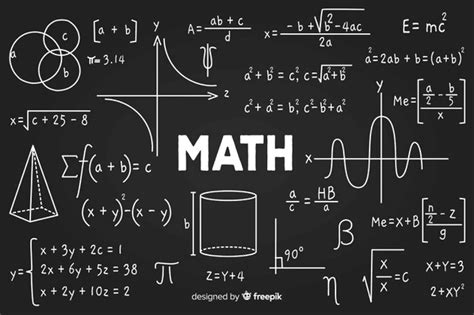An In-Depth Comparison
Background

Discrete mathematics and calculus are two fundamental branches of mathematics with distinct characteristics and applications. While both disciplines play crucial roles in various scientific fields, students often grapple with the question of which is more challenging. This article aims to shed light on this debate by providing a comprehensive comparison of the complexity, concepts, and applications of discrete math structures and calculus.
Complexity: A Comparative Analysis
Determining the absolute difficulty of a subject is subjective and varies among individuals. However, empirical evidence and anecdotal reports suggest that discrete math structures and calculus present unique challenges.
Calculus
Calculus, known for its complex notation and emphasis on continuous functions, can be demanding for students. Mastering the concepts of limits, derivatives, and integrals requires a strong foundation in algebra and trigonometry. Additionally, calculus involves abstract concepts such as infinitesimals and the epsilon-delta definition, which can be challenging for beginners.
Discrete Math Structures
Discrete math structures deal with discrete objects and sets, focusing on logical reasoning, proof techniques, and combinatorics. While the concepts may appear straightforward initially, the complexity arises from the sheer number of rules and theorems that students must memorize. Proving theorems and solving problems often requires a high level of logical thinking and attention to detail.
Key Differences
| Feature | Calculus | Discrete Math Structures |
|---|---|---|
| Objects of Study | Continuous Variables | Discrete Objects, Sets |
| Notation | Complex, Involving Limits and Derivatives | Clear and Concise, Based on Logic |
| Concepts | Limits, Derivatives, Integrals | Logic, Proof Techniques, Combinatorics |
| Complexity | Can Be Challenging Due to Abstract Concepts | High Number of Rules and Theorems to Memorize |
Applications: Exploring Real-World Impact
Both discrete math structures and calculus have wide-ranging applications in various fields:
Discrete Math Structures:
- Computer Science: Algorithm design, data structures, cryptography
- Operations Research: Optimization, scheduling, decision-making
- Linguistics: Natural language processing, computational linguistics
- Biology: Population modeling, DNA sequencing
Calculus:
- Physics: Mechanics, electromagnetism, fluid dynamics
- Engineering: Design, modeling, simulation
- Economics: Optimization, market modeling
- Finance: Risk assessment, investment strategies
Common Mistakes to Avoid
Calculus:
- Misinterpreting the meaning of derivatives and integrals
- Confused about units and dimensions
- Failing to understand the concept of limits properly
Discrete Math Structures:
- Neglecting to fully understand the rules of inference
- Making logical fallacies in proofs
- Underestimating the importance of combinatorics in problem-solving
Frequently Asked Questions (FAQs)
1. Which subject is better for a career in computer science?
Discrete math structures provide a strong foundation for algorithm design and data structures, while calculus is essential for graphics and simulations.
2. Is discrete math structures a prerequisite for calculus?
Not typically, but a strong understanding of logic and proof techniques can be beneficial for calculus.
3. What is the job outlook for professionals with skills in discrete math structures?
The demand for individuals with expertise in discrete math structures is growing rapidly in fields such as computer science, operations research, and linguistics.
4. Can I self-study discrete math structures?
Yes, with dedication and access to quality resources, it is possible to learn discrete math structures independently. However, seeking guidance from a qualified instructor is recommended for a deeper understanding.
Conclusion
Discrete math structures and calculus are both challenging subjects but offer distinct rewards. While calculus delves into the world of continuous variables and change, discrete math structures provide a framework for logical reasoning and problem-solving. Ultimately, the choice between these subjects depends on individual interests, career aspirations, and learning preferences. By embracing the unique challenges and leveraging the applications of each discipline, students can unlock new possibilities and make meaningful contributions to various fields.












